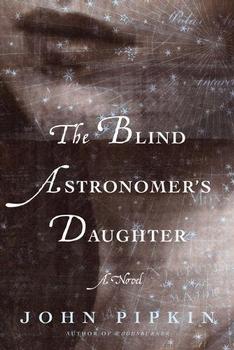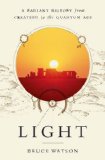Summary | Excerpt | Reviews | Beyond the book | Read-Alikes | Genres & Themes | Author Bio

The Secret History of Evolution
by Rebecca StottDarwin’s Ghosts tells the story of the collective discovery of evolution, from Aristotle to Al-Jahiz, an Arab writer in the first century, from Leonardo da Vinci to Denis Diderot in Paris, exploring the origins of species while under the surveillance of the secret police.
Christmas, 1859. Just one month after the publication of On the Origin of Species, Charles Darwin received an unsettling letter. He had expected criticism; in fact, letters were arriving daily, most expressing outrage and accusations of heresy. But this letter was different. It accused him of failing to acknowledge his predecessors, of taking credit for a theory that had already been discovered by others. Darwin realized that he had made an error in omitting from Origin of Species any mention of his intellectual forebears. Yet when he tried to trace all of the natural philosophers who had laid the groundwork for his theory, he found that history had already forgotten many of them.
Darwin’s Ghosts tells the story of the collective discovery of evolution, from Aristotle, walking the shores of Lesbos with his pupils, to Al-Jahiz, an Arab writer in the first century, from Leonardo da Vinci, searching for fossils in the mine shafts of the Tuscan hills, to Denis Diderot in Paris, exploring the origins of species while under the surveillance of the secret police, and the brilliant naturalists of the Jardin de Plantes, finding evidence for evolutionary change in the natural history collections stolen during the Napoleonic wars. Evolution was not discovered single-handedly, Rebecca Stott argues, contrary to what has become standard lore, but is an idea that emerged over many centuries, advanced by daring individuals across the globe who had the imagination to speculate on nature’s extraordinary ways, and who had the courage to articulate such speculations at a time when to do so was often considered heresy.
With each chapter focusing on an early evolutionary thinker, Darwin's Ghosts is a fascinating account of a diverse group of individuals who, despite the very real dangers of challenging a system in which everything was presumed to have been created perfectly by God, felt compelled to understand where we came from. Ultimately, Stott demonstrates, ideas - including evolution itself - evolve just as animals and plants do, by intermingling, toppling weaker notions, and developing over stretches of time. Darwin's Ghosts presents a groundbreaking new theory of an idea that has changed our very understanding of who we are.
The true singularity of Stott's book is her in-depth study of philosopher/scientists starting with Aristotle - who, like many early thinkers, concentrated on the evolution of animals - proceeding through all the other major theorists in the field up to the age of Darwin himself. If Stott had stopped there it would have been a very good book, one I'd highly recommend. But what makes Darwin's Ghosts amazing is she goes even further to investigate how the developing scientific thinking on the origins of life influenced the arts and popular culture...continued
Full Review
 (592 words)
(592 words)
(Reviewed by Lisa Guidarini).
Wendy Northcutt, who has a degree in molecular biology from the University of California at Berkeley, is the creator of the "Darwin Awards," pop culture's nod to Darwin's theory of the survival of the fittest, awarded annually to one person voted to have "improved our gene pool by removing themselves from it." In other words, someone who - through his or her sheer stupidity - was either killed or made sterile during a totally preventable act.
The Five Rules for this most auspicious award:

If you liked Darwin's Ghosts, try these:

The Blind Astronomer's Daughter
by John Pipkin
Published 2017
A novel of the obsessions of the age: scientific inquiry, geographic discovery, political reformation, but above all, astronomy, the mapping of the solar system and beyond. It is a novel of the quest for knowledge and for human connection - rich, far-reaching, and unforgettable.

by Bruce Watson
Published 2016
Although lasers now perform everyday miracles, light retains its eternal allure. "For the rest of my life," Einstein said, "I will reflect on what light is." Light explores and celebrates such curiosity.